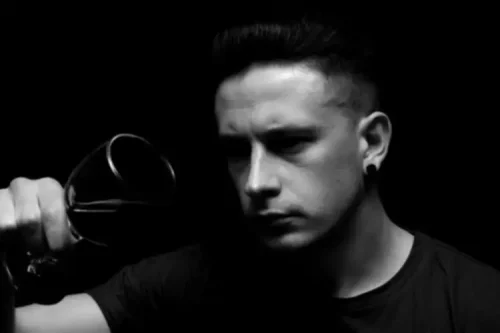Understanding Alcohol and Anger’s Connection

Drinking cocktails that include energy drinks should be considered a possible factor for aggressive behavior as well. Researchers surveyed 175 young adults who mixed alcohol with caffeinated energy drinks about their verbal and physical aggression in bar conflicts. Results showed enough escalation in people consuming these drinks to label the beverages a «potential risk» to increased hostility.
- I believe we’re capable of bringing about positive change through collective action.
- Additionally, more than three-quarters of study participants with the gene had mood disorders, personality disorders, and mood swings (10).
- It decreases inhibition and can increase stress hormones like cortisol, making some individuals more prone to anger and aggression when drinking.
- These include underlying mental health issues, personal history of violence, and even genetics.
- While anger is an emotion you experience when you feel threatened, aggression is a hostile behavior that results in physical or psychological harm to yourself or others.
The Difference Between Anger and Aggression
By staying calm, you prevent the buildup of anger that can quickly lead to an explosion and stop yourself from getting wrapped up in the intense emotions of the angry drunk. These insights drug addiction make up the foundation of the strategies you can use to deal with an angry drunk – and provide some perspective for how you can, and cannot, approach them about their anger. But there are a few simple things you can do to learn how to deal with an angry drunk, and hopefully resolve the situation. You may be wondering what you can do when someone shows signs of rage after consuming too much alcohol. While it is always better to discourage the use of alcohol for people who have this tendency, some things can be done to manage the situation. It is important to note that alcohol-related aggression and/or violence do not occur in the majority of all chronic alcohol consumers or all alcohol-dependent individuals.

Psychological and Social Factors
Understanding the triggers and warning signs can be crucial in helping you or a loved one manage this condition and seek appropriate treatment. As well as being linked to aggression (and making it more likely you could be on the receiving end), binge drinking harms your physical and mental health. One way to have a bit less is to alternate alcoholic drinks with a soft drink or water. Many people who drink are never violent and even those who do become aggressive won’t do so all the time. But there is strong evidence of a link between alcohol and aggression.

The Do’s and Don’ts of Dealing with an Angry Drunk
It’s about changing your attitudes and your entire lifestyle around the idea of sobriety. If your attitudes haven’t changed and you’re just trying to brute force your way out of alcoholism, you’re going to end up in emotional turmoil trying to deal with the rollercoaster of mental issues. Building a reliable support system can play a crucial role in coping with alcoholic rage syndrome. Joining support groups for individuals dealing with similar challenges can also contribute to your recovery journey by providing a safe space to share experiences and learn new coping strategies. Community-based programs play a vital role in preventing and managing alcoholic rage syndrome. They provide a platform for individuals to learn about the risks and consequences of alcohol on emotions, such as anger and aggression.
Do I Have A Drinking Problem? 7 Major Warning Signs
Like benzos and other drugs, molecules of alcohol interact with the brain’s GABA receptors, prompting the release of drunk rage dopamine. To curb alcohol-fueled rage, it helps to know how you respond to drinking. And you may need to take steps to stop or limit alcohol consumption. A small 2015 study published in Translational Psychology investigated the role of this variation in impulsive and aggressive behavior while intoxicated (10).
- This means that when you’ve had a drink, you can find it more difficult to resist the urge to act angrily, with little thought for the consequences.
- Because of the way addiction works, denial is a strong thing to overcome.
- Yes, some people might have underlying psychological issues like stress or anxiety that become more pronounced when they drink.
- Like benzos and other drugs, molecules of alcohol interact with the brain’s GABA receptors, prompting the release of dopamine.
Have family members or others mentioned concerns about your alcohol consumption? Did you recently experience an incident that stemmed from your alcohol-related aggression? These situations likely spark emotions when you think about them — perhaps you feel embarrassed or ashamed. No matter the reasons behind feeling anger when drinking alcohol, https://ecosoberhouse.com/ such behavior can be harmful. By consistently becoming angry or belligerent when you drink, you put yourself and others at risk. Therefore, seeking a solution for alcohol-related aggression is essential for your future health and safety.

Helping an Angry Drunk
While anger is an emotion you experience when you feel threatened, aggression is a hostile behavior that results in physical or psychological harm to yourself or others. Some individuals exhibit “trait anger,” a personality trait that means they continually look for triggers that make them angry. These therapy approaches can equip you with the skills to manage alcohol addiction, overcome anger issues, and prevent relapse. Don’t hesitate to consult a mental health professional regarding the most suitable therapy option for your needs.
Managing Anger and Reducing Alcohol-Related Aggression
The challenges faced in this arena have provided her with a strong base of practice in assessment, treatment, and case management. When dealing with alcoholic rage syndrome, it’s crucial to recognize the signs and seek help for yourself or your loved one. You don’t need to navigate this difficult journey alone – compassionate support is available.
